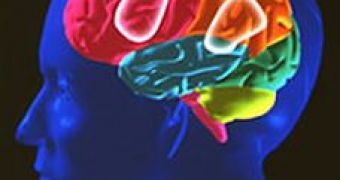Those French classes may have been a harsh punishment for you during your youth.
But now, Canadian scientists prove that the lifelong use of two languages delay degeneration of brain function, in other words dementia, by four years compared to monolingual people.
Scientific researches have been examining for a long time how lifestyle items such as physical activity, education and social engagement may build the "cognitive reserve" and a long-lasting healthy brain in later years of life.
The cognitive reserve means enhanced neural plasticity, compensatory use of alternative brain regions, and enriched brain vasculature, which fight against the onset of dementia symptoms (brain degeneration).
Now, the team at the Rotman Research Institute at the Baycrest Research Centre for Aging and the Brain, adds bilingualism to these factors. "We are pretty dazzled by the results," says principal investigator Dr. Ellen Bialystok, Professor of Psychology at York University and Associate Scientist at the Rotman Research Institute at Baycrest. "Our study found that speaking two languages throughout one's life appears to be associated with a delay in the onset of symptoms of dementia by four years compared to those who speak one language."
The same team had shown that bilingualism enhances attention and cognitive control in both children and older adults. Now, they examined the diagnostic records of 184 patients of Baycrest's Sam and Ida Ross Memory Clinic between 2002 and 2005, which presented cognitive complaints.
The study group compassed 91 monolingual persons and 93 bilingual ones, the other language spoken besides English being Polish, Yiddish, German, Romanian and Hungarian. 132 patients met criteria for probable Alzheimer's (the most common form of dementia, which is highly genetic); the other 52 presented other dementias.
The researchers used data of Mini-Mental State Examination (MMSE) scores (a measure of general cognitive functioning), years of education and occupation. The MMSE scores were the same for the monolingual and bilingual groups at their initial visit to the clinic, pointing comparable levels of impairment.
The team discovered that the mean age of onset of dementia symptoms in the monolingual group was 71.4 years, while the bilingual group was 75.5 years, and this difference persisted even after putting on equation the bias determined by cultural differences, immigration, formal education, employment and gender. "There are no pharmacological interventions that are this dramatic," says Dr. Freedman, who is Head of the Division of Neurology, and Director of the Memory Clinic at Baycrest.

 14 DAY TRIAL //
14 DAY TRIAL //